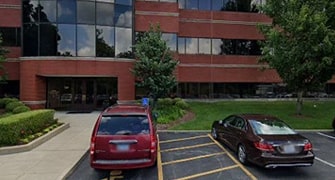Free Consultation
(314) 500-HURTAre you an attorney or law firm staff member interested in giving or receiving referrals? Burger Law has established relationships with a great network of attorneys in Northern Illinois and across the country and we are always happy to explore new referral relationships. Keep reading to learn more about how we handle lawyer to lawyer referrals or contact us now to discuss a new referral.
Learn more about the accomplished personal injury trial attorneys here at Burger Law, call our firm at (866) 935-4153, or reach out directly to Gary Burger at [email protected] to speak to us about case referrals now.
There can be uncertainty about attorney referral, or co-counsel, fees. Some attorneys and law firms are uncertain about what is ethical and allowable, while others frequently co-counsel lawyers in personal injury cases.
Burger Law co-counsels with lawyers throughout the Midwest in personal injury cases. Mutually beneficial attorney referral relationships are built on open communication, transparency, dedication to teamwork, and quality service to the client. Our attorneys have had excellent results for grateful clients resulting in substantial referral fees for co-counseling attorneys.
Below, Burger Law takes a closer look at attorney referral fees and explains how lawyers can have successful attorney referral agreements that deliver superior results.
Burger Law works with other law firms and lawyers constantly and in many different capacities. Below are just a few recent reviews we have received from our peers and lawyers with whom we have worked.
Gary is an accomplished personal injury trial lawyer. He is well respected by Judges and attorneys alike. He has tried many types of injury cases in courts throughout the St. Louis area and beyond. He has takes a personal interest in every client and provides outstanding representation with a track record of proven results. Burger Law is a top notch law firm!
— Lloyd Nolan
I am a lawyer, not a client. I’ve known Gary Burger for at least two decades. He is an extremely capable and honorable personal injury lawyer with a great reputation – one of the best.— Joe Jacobson
Gary is an all-around top-notch lawyer and litigator. I am a litigator and I know one would have a hard time finding a better personal injury trial lawyer than he. I would highly recommend him to anyone.— Ed Kruse
As a fellow lawyer, I really enjoyed the CLEs that they provided as they were very informative about ERISA matters. I also enjoyed speaking with Joan Burger, as she met with me after mediating one of my cases and gave me a lot of good advice for a young attorney.— Michelle Faron
If you are a lawyer and would like to learn techniques and insights from our attorneys with decades of experience, start by checking out our Lawyer v. Lawyer podcast featuring Gary Burger and Debbie Champion or follow our blog or Facebook page for news on our upcoming CLEs.
An attorney referral service is the act of attorneys referring business to other lawyers within their specific practice area. When this happens, the referring attorney will likely receive a lawyer referral fee from the other attorney. Below are some of the different ways that Burger Law practices attorney referral with lawyers in St. Louis and throughout the Midwest:
Our attorneys invite you to leverage our experience, resources, and network to get the best results for your clients. The client always remains yours, and our attorneys promise to be transparent – you can see the file or know what’s going on at any time. If you are interested in connecting, call Gary Burger at (866) 935-4153 or email him at [email protected].
Like in all co-counsel scenarios, sharing a fee with an out-of-state attorney is allowed when the division is in proportion to the services performed by each lawyer or if each lawyer assumes joint responsibility for the representation; if the client agrees to the association in writing; and the total fee is reasonable.
At any given time, a large percentage of our practice is made up of cases involving car wrecks, truck crashes, medical malpractice, wrongful death, and workers’ compensation claims.
Like all things, there is a right way and a wrong way to practice lawyer referral fees. The American Bar Association (ABA) Model Rules of Professional Conduct establishes clear rules for attorney referral fees, which have been adopted verbatim in most states.
The ABA Model Rules regarding lawyer referral fees ensure that attorneys aren’t motivated to refer clients without doing any of the work. Lawyer referrals tainted by greed or bribery can harm victims that need fair legal help and hurt the legal industry as a whole.
Missouri ethics rules approve splitting fees between lawyers under Rule 1.5(e). This facilitates getting the client assigned to the best lawyer for the type of case. Fee divisions are appropriate if: the division is in proportion to the work done or both lawyers/firms assume joint responsibility; the client agrees and this agreement is confirmed in writing; and the total fee is reasonable.
Burger Law pays generous fees to referring counsel in civil and workers’ compensation cases. Our role with co-counsel varies from no involvement to working the whole case up and trying it with the referring lawyer. Most lawyers like to keep in communication with us and the client. Referring fees vary with different levels of participation, but we typically finance the case and pay all expenses.
At any given time, a large percentage of our practice at Burger Law is made up of cases involving car wrecks, truck crashes, medical malpractice, wrongful death, and workers’ compensation claims. If you have a client with a complex case in one of these practice areas, our attorneys can create a fair agreement.
In an attorney referral agreement, both parties are responsible for the case. As such, it’s in the best interests of both attorneys to use the following best practices before entering into a joint referral agreement:
If you have a client with a complex personal injury case, use best practice for attorney referral agreements, and want experienced and competent assistance in handling the matter, contact Burger Law at (866) 935-4153. We look forward to the opportunity to work with you.
We offer free consultations and are available 24/7 to take your call. Live chat, text, and virtual meetings are available.
Past CLE Materials
Client Reviews
This law firm is absolutely amazing. They took on my case, when nobody else would! They fought hard for me when it seemed there was no hope. They kept me informed and always asked for my input before making decisions on my case. Gary puts himself into every case unlike most law firm owners. Gary and his team really care about every one of their clients, and fights hard to get you a fair settlement. They actually won my case out of court, and then reduced my fees to make sure I could get my car fixed and be able to get back to some normality. I would recommend Burger Law over and above any other firm! If you go somewhere else you aren’t getting the best!
View More Reviews on Google Maps and Yelp


521 W. Main Street Suite 201 O
Belleville, IL 62220
By appointment only
(618) 500-4878 GET DIRECTIONS
332 S Michigan Ave Suite 900
Chicago, IL 60604
By appointment only
(312) 500-HURT GET DIRECTIONS
100 Chesterfield Business Pkwy Suites 200-222
Chesterfield, MO 63005
By appointment only
(314) 648-8348 GET DIRECTIONSNO FEES UNTIL WE WIN YOUR CASE
We offer free consultations and are available 24/7 to take your call. Live chat, text, and virtual meetings are available.
or call us at